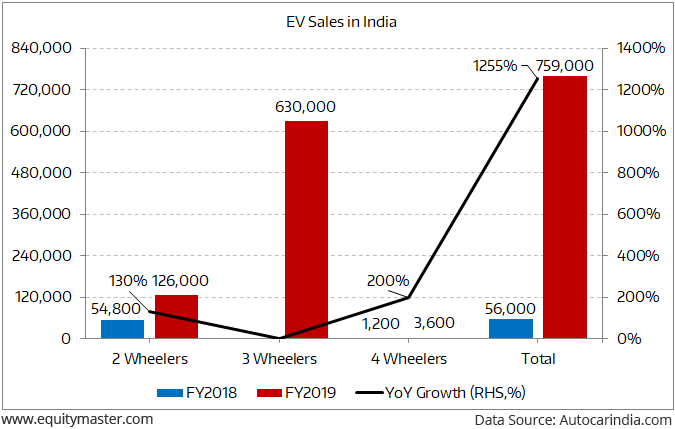India's Third Giant Leap
This Could be One of the Biggest Opportunities for Investors
- Home
- Todays Market
- Indian Stock Market News August 21, 2019
Sensex Opens Flat; Realty and Metal Stocks Lag Wed, 21 Aug 09:30 am
Asian share markets are lower today as Chinese and Hong Kong shares fall. The Shanghai Composite is off 0.1% while the Hang Seng is flat. The Nikkei 225 is trading down by 0.4%. Meanwhile, Financial shares led US stocks lower on Tuesday to end a three-day rally as investors awaited comments from Federal Reserve Chair Jerome Powell at the end of the week. The S&P 500 financial index dropped 1.4% and the group weighed most heavily on the benchmark index among its major sectors, which all registered losses.
Back home, India share markets opened on a flat note with negative bias. The BSE Sensex is trading down by 45 points while the NSE Nifty is trading down by 20 points. The BSE Mid Cap index and BSE Small Cap index opened down by 0.2% and 0.1% respectively.
Sectoral indices have opened the day on a mixed note with automobiles stocks and information technology stocks witnessing maximum buying interest. Realty stocks and metal stocks have opened the day in red.
The rupee is currently trading at 71.49 against the US$.
The Indian rupee on Tuesday furthered its loss by another 28 paise to close at a new six-month low of 71.71 against the US dollar as economic uncertainties continued to weigh.
Market participants remained risk averse considering a host of factors including fast-spreading economic slowdown, outlook on foreign fund outflows and weakness in most emerging market currencies, the reports noted.
Starting off on a weaker note, the rupee fell to a day's low of 71.80 against the US dollar before settling at 71.71 against the US dollar, down 28 paise over the previous close. This is the lowest level for the local unit since February 4, when it closed at 71.80 a dollar.
On Monday, the Indian rupee had settled at 71.43 against the US dollar.
Indian rupee became Asia's worst performing currency this month. For the common man, the falling rupee is going to hit where it hurts the most-the pocket.
Vijay Bhambwani, the editor of Weekly Cash Alerts, had pointed out last week that the rupee will fall further.
In the video below, Vijay explains what's behind the fall in rupee and how much can it fall further.
Moving on to the news from the automobiles sector. According to automobile dealers' body, federation of Automobile Dealers Associations (FADA), retail sales of passenger vehicles (PVs) dropped by 11% to 2,43,183 units in July 2019 as compared to 2,74,772 units the same period last year.
The drop in PV sales was mainly on account of weak demand across the country.
Two-wheeler sales declined by 5%, while commercial vehicle sales dropped by 14%. However, three-wheeler sales saw an increase of 3%.
Total sales across categories declined by 6% to 16,54,535 units in July as against 17,59,219 units.
As per the report, consumer sentiment and overall demand continued to be quite weak across all segments and most geographies. FADA represents over 15,000 automobile dealers who run around 25,000 dealerships across the country.
Reports state that many dealers who have recently entered the auto industry are finding it difficult to manage their repayment obligations. Banking industry experts estimate the total outstanding loans to automobile dealers to be in the range of Rs 700-800 billion.
Note that multiple factors have affected the auto sector of late.
The liquidity crisis faced by NBFCs, regulatory changes leading to increased costs, new emission norms... they have all taken their toll.
However, it is interesting to note that despite the slowdown in the auto sector, the sales volume of electric vehicles (EVs) are growing at a robust pace.
Have a look at the chart below:
Electric Vehicle Sales on a High Growth Trajectory!
Electric-2 wheelers sales volume registered 130% YoY growth in FY19. 4-wheeler EVs grew by 200% YoY.
Similarly, electric three-wheelers reported the highest sales volume of 630,000 units. It is important to note that the electric three-wheeler industry has been growing without government support.
The base is quite low compared to the internal combustion engine (ICE) vehicle sales. However, you cannot ignore the growing momentum in EV sales.
The recently announced government incentives will give a further boost to EV sales.
The coming one year will be a real test for India's auto companies.
It will also tell us if this slowdown is temporary or if there has been a structural change in the sector.
In our view, companies in the sector adapting their business models to the rapidly changing environment will survive and thrive.
To know what's moving the Indian stock markets today, check out the most recent share market updates here.
For information on how to pick stocks that have the potential to deliver big returns, download our special report now!
Read the latest Market Commentary



Equitymaster requests your view! Post a comment on "Sensex Opens Flat; Realty and Metal Stocks Lag". Click here!
Comments are moderated by Equitymaster, in accordance with the Terms of Use, and may not appear
on this article until they have been reviewed and deemed appropriate for posting.
In the meantime, you may want to share this article with your friends!